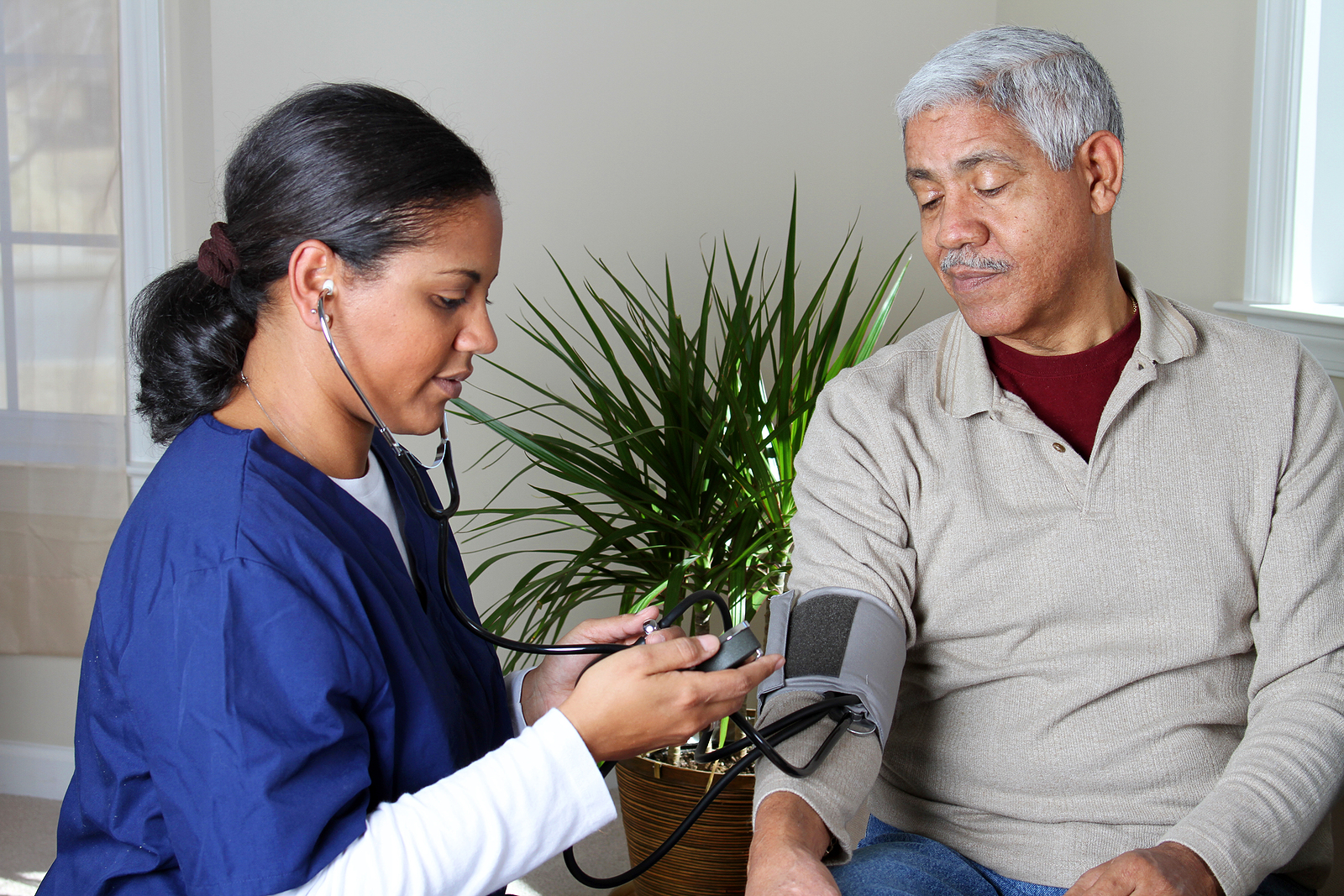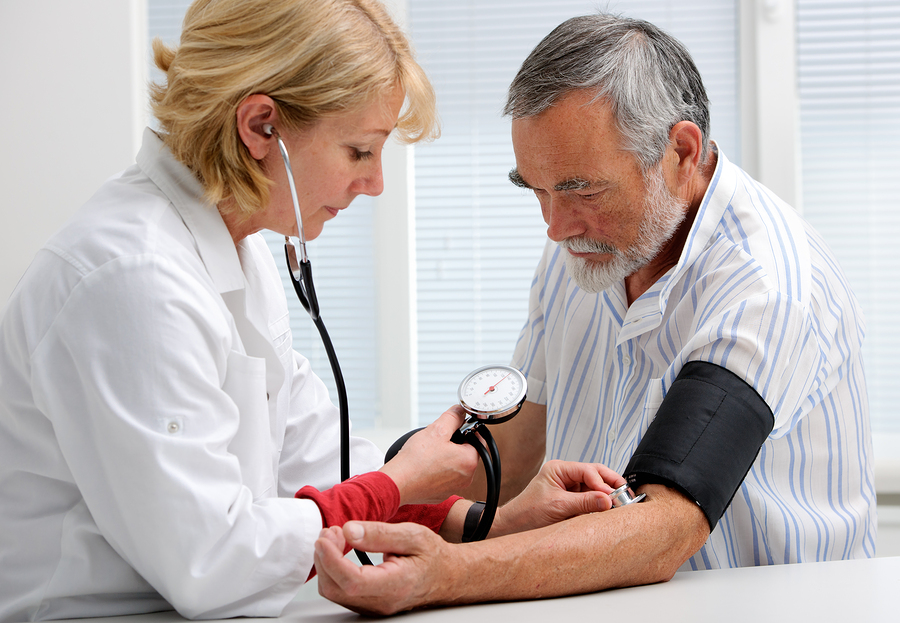Tips To Help Seniors Lower Their Blood Pressure

Seniors have an increased risk of developing high blood pressure as they get older. According to studies there are more than 70 million people who have high blood pressure. Age is the number one risk factor for high blood pressure, but other factors like being overweight, having heart disease, and having other health problems also increase the risk of high blood pressure.
Medication is usually required to treat high blood pressure. However, seniors are encouraged to make lifestyle changes that can help to manage their blood pressure and work with their medication to bring their blood pressure down.
Many seniors find that home care assistance helps them manage their high blood pressure. With home care assistance seniors have someone to encourage them to make healthy choices, check their blood pressure regularly, and make sure they are taking their medication correctly.
In addition to monitoring their blood pressure and taking their medication as prescribed seniors can use these tips to help manage their high blood pressure at home:
Eat More Plants
A plant-based diet is a heart-healthy diet. Seniors should be eating a diet that is mostly vegetables, lean protein, and whole grains. The DASH diet is often recommended by doctors for seniors who have high blood pressure or have risk factors for high blood pressure.
Eat Less Salt
Eating salty foods or adding salt to foods is directly linked to an increase in blood pressure. Seniors should cut out salt and use herbs and spices to add flavor to food instead. Seniors should also avoid processed foods which tend to have a lot of sodium.
Exercise More
Regular exercise has numerous health benefits, including lowering blood pressure and helping to reduce stress. Seniors should aim for at least 150 minutes of moderate-intensity aerobic exercise per week, such as walking, swimming, or cycling.
Maintain a Healthy Weight
Being overweight is one of the primary risk factors for having high blood pressure. Losing even a small amount of weight can make a big difference in managing blood pressure. Seniors should talk to their doctor about the best way for them to try and lose weight if they are overweight.
Don’t Drink Too Much
Excessive alcohol consumption can contribute to high blood pressure. Seniors should limit alcohol intake to moderate levels, which is generally defined as up to one drink per day for women and up to two drinks per day for men.
Quit Smoking Now
Smoking is a major risk factor for cardiovascular disease, including high blood pressure. Seniors can see big improvements in their health pretty quickly after they stop smoking, so even if your senior parent has smoked for years there are big benefits to quitting. Medications and over the counter products can help seniors quit.
Manage Stress
Chronic stress can contribute to high blood pressure. Seniors should explore stress management techniques such as deep breathing exercises, meditation, yoga, or hobbies that promote relaxation. Engaging in activities that bring joy and relaxation can positively impact overall well-being.
Take Medications as Prescribed
If a healthcare provider prescribes medications to manage blood pressure, seniors should take them as directed. It’s crucial not to skip doses or stop taking medications without consulting a healthcare professional.
Sources:
https://www.cdc.gov/nchs/products/databriefs/db289.htm
https://www.hopkinsmedicine.org/health/conditions-and-diseases/high-blood-pressure-hypertension/hypertension-what-you-need-to-know-as-you-age
Subscribe
Date: December 26, 2023
